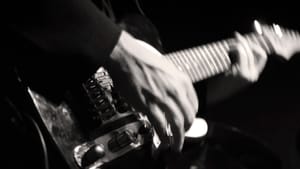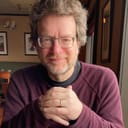Stay in the Loop
BSR publishes on a weekly schedule, with an email newsletter every Wednesday and Thursday morning. There’s no paywall, and subscribing is always free.
Music and killing

“I don’t play guitar anymore. Too much killing.”
My rule for cab drivers and barbers is, if they don’t talk, I don’t, but if they do, I do. My cab driver was taking me to Chicago’s O’Hare Airport, after a week of rehearsals and performances of Vespers at Northwestern University. The week before, my driver from the airport to Northwestern had come to Chicago from Ethiopia by way of Minnesota and was a carpenter, electrician, roofer, house-flipper, and Lutheran. This cabbie back to the airport was just as interesting, and talkative.
He asked me what I had been in town for. I told him about the concerts; he told me he played guitar. When I asked if he was in a band, that’s when he said that he had, but he got out because of the killing. I thought he meant killing in general, like that the world was a hard place, so I said something about wondering if playing music makes any difference. But he corrected me.
“I see too much, so I get out”
“No, no. They shoot our bass player. Kill him. People get jealous, get mean, you know. Not just him. I see many shootings, hear gunfire.” “Where was this?” “Here, Chicago. Sout’ Side. Bad…mmm, lots of playing, but very bad, I see too much, so I get out.”
He had an accent I couldn’t place. “Are you from here?”
“I move here long time ago. Forty years.”
“You only look 40,” I said.
“Ha!” He laughed and looked at me in the rearview. “I know. People tell me. But I have a son, 39! Ha!”
“So you don’t play at all anymore?”
“Oh sure, but only for my wife, you know, maybe some friends. No more the bars, the clubs, where people get jealous, where the money is too easy, too…quick. You know. So you write music? I write songs, too. I have some with me.”
While he talked, he fumbled in the console next to his seat and pulled out a cassette tape. “You must play that for me,” I said. “Really? You’re just being nice. We’re almost at the airport, 10 minutes.”
“No. You have to. I want to hear the music you play for your wife.”
An angel in the sky
Sure enough, the radio had a cassette slot, so he put in the tape, forwarded, checked, forwarded again, and found what he wanted. “This I wrote when Whitney Houston died. So sad. I call this ‘Whitney.'” He shrugged and smiled at me. It was guitar, just guitar and him singing. “Whitney…oh, Whitney…you’re an angel in the sky….” He sang in the cab along with himself on the tape.
The guitar had a warm, deep blue sound, the sound that 55-gallon drums make when they jostle, empty, on a skid. Three or four low notes bumped and revolved around themselves. Rhythmic slaps, ga-chungah, fell into place; melodic fragments — not melody, but Amen commentaries to his voice — circled sweetly and nodded. It was the sound of chocolate, of bamboo. It was good. It was quite good. “Whitney, oh Whitney, yass, yass…,” he half-sang, half-prayed, and in the middle, another language. Before I could ask, he said, “I even sing in p’twah, you know, crihl.” Patois, creole. That was the accent. “Yah, crihl,” he smiled, “I mix it in, you know, that’s me.”
When I started my cello concerto, the Ferguson shooting and other tragedies were just then tumbling headlong after each other. The concerto premiered two weeks ago in Helena, Montana, but months ago when I began to compose it, the news, for days on end, was uproar. Anger and opinions flew, and there I was, wondering how to begin a cello concerto, wondering if I should have an opinion, wondering how a composer reacts, wondering how anyone reacts at such times.
Unbidden, the Beatitudes
Unbidden, “Blessed are the peacemakers” came to mind. Of all the things that came into my mind, this, I thought, was the best. I don’t know what I was looking for, but “Blessed are the peacemakers,” I thought, was good. I began to think about a piece of music that could be draped on the Beatitudes, the beginning of Christ’s Sermon on the Mount, the beginning of which, in the fifth chapter of the Gospel of Matthew, states, “And seeing the multitudes.” That would make a good title, I thought, for the cello concerto.
I’ve never seen a shooting. Outside of funerals, I’ve seen three dead people, all of whom — one young, one middle-aged, one old — died from natural causes. So I don’t know how one ought to react to a Ferguson shooting, and I try very hard — I’ve spent my life learning how — not to have opinions about things of which I’m ignorant. So: “Blessed are the poor in spirit…those who mourn…the meek…those who hunger and thirst for righteousness…the merciful…the pure in heart…the peacemakers…those who are persecuted for righteousness’ sake…,” I thought, was the best I could do.
I still write, after the killings, and after the killings my cab driver still plays the guitar. He gave it up but he still plays, and he still sings. We do the best we can do, my composing brother and I, and the money is not, you know, too quick, but maybe a cello can play a concerto in Montana and maybe Whitney is an angel in the sky.
Sign up for our newsletter
All of the week's new articles, all in one place. Sign up for the free weekly BSR newsletters, and don't miss a conversation.

 Kile Smith
Kile Smith